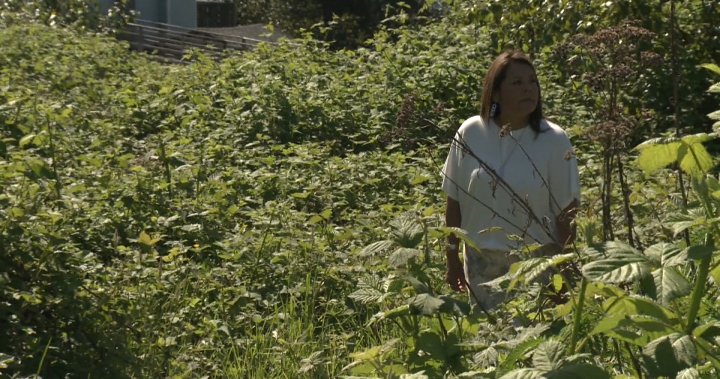Andrea Aleck, the Tsleil-Waututh Nation health and wellness director, has plans to transform an empty lot on the Tsleil-Waututh Nation reserve into a residential school memorial park and garden. After discussions with community Elders, Aleck hopes to create a space where the community can gather each year to pay respects to residential school survivors and honor their resilience. The proposed location for the garden is between Alder Court and Takaya Drive, and will include garden spaces, areas for ceremony and storytelling, and a wild area with native evergreen trees like sequoia and cedar. This project is part of the nation’s five-year food sovereignty vision and strategy and will include a community garden, hydroponics farm, and orchard.
The garden space will also feature memorial plaques, carvings, and covered areas for reflection and healing. Aleck believes that this space will provide survivors and community members with an opportunity to spend time in a beautiful and healing environment. The project has already been approved by the chief and council and will require significant civil engineering work, potentially taking two years to complete. The recent discoveries of unmarked graves of residential school students in Canada have highlighted the dark legacy of residential schools, and Aleck hopes that the memorial park and garden can serve as a place of healing and education for the community.
Aleck envisions the garden space as not only a place for healing within the community but also as an educational tool for surrounding schools and neighbors. She hopes that the space will bring people together to learn about Indigenous history and culture, serving as a stepping stone on the path to reconciliation. Tsleil-Waututh Nation is currently accepting bids for the project until May 24, with the goal of creating a space that promotes healing, reflection, and education for all who visit. The garden will be a place for the community to honor and remember residential school survivors and their resilience in the face of a dark chapter in Indigenous history.
The memorial park and garden project represents an important step towards healing and reconciliation within the Tsleil-Waututh Nation community. By creating a space for reflection, ceremony, and storytelling, Aleck hopes to honor the memory of residential school survivors who did not make it home and to recognize the resilience of those who did. The inclusion of a wild area with native trees and spaces for community gathering will provide a place for healing and learning for all who visit. The project is part of a larger food sovereignty vision for the nation and is seen as a vital component of the community’s healing journey.













